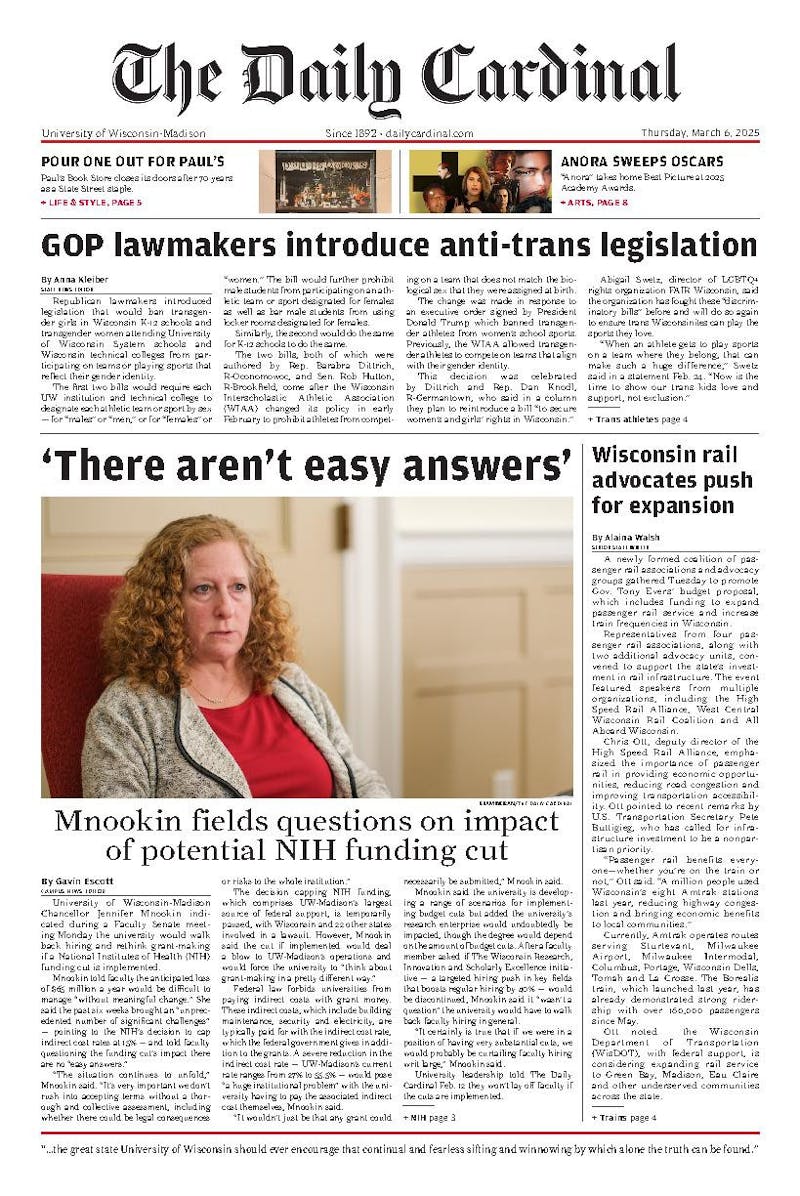The University of Wisconsin-Madison is implementing a new six-week paid parental leave policy for employees after the birth or adoption of a child starting July 1 following discussion and demands from faculty and staff.
The proposal will grant parents paid parental leave for six weeks in a 12-month period for all faculty and staff. This will also include lecturers, research and graduate workers in teaching and research and project assistants.
But is this enough for the new parents and their families? Not really.
While the proposal is a step in the right direction, six weeks is simply not enough time for new parents to adjust to their new addition. For new parents that gave birth, more than 12 weeks is needed for a maternity leave, according to Dr. Suzanne Bovone, an OB-GYN at the Obstetrics and Gynecology of San Jose clinic.
Many medical complications — both physical and mental — that happen after childbirth do not arise until around the three-month mark, according to NPR. Given this fact, the six weeks the UW System offered is only half the time to allow for the parents to heal. Consider this: is a month and a half after growing a little human for the past nine months enough time?
The 12 weeks following birth are often considered the fourth trimester. While many parents who give birth typically heal from vaginal and cesarean births in two to three weeks, problems afterward can be due to breastfeeding and their mental health. Along with just mentally adapting to becoming a parent and having gone through labor, 1 in 8 parents postpartum suffer from postpartum depression, according to the CDC. A 12-week paid parental leave can be beneficial to help monitor and work through these situations.
The budget for this plan will cost $458,500 annually for all 865 workers, according to the Board of Regents. This is only 0.02% of the university’s $2.6 billion budget for wages and fringe benefits. Why not do more if the cost is so minimal?
This is the first step to a much-needed policy to aid working parents as they transition to a huge new stage in their lives and will cost so little in comparison to the vast total budget. It’s truly a no-brainer why they should provide this to the employees. Workers are currently using vacation and sick days or simply taking unpaid time off.
Workers are able to take 12 weeks of unpaid leave under the Family Medical and Leave Act. No parent should have to go 12 weeks — or even 6 weeks — without pay, especially when the average U.S. cost to have a baby is $18,865 and the average cost to adopt in the United States is between $20,000 and $45,000. The university should be supporting their workers, and this new policy does that.
Aside from health care for parents who gave birth, the first few weeks after birth are an integral part of bonding with your child. Postpartum depression can interfere with this, given it most commonly occurs six weeks after childbirth, leading the parent to have a more challenging time connecting with their new baby.
Adoption has many factors in play for bonding with the child. Adopted children can have trauma from previous experiences — whether that be from foster care or being removed from homes — that affects a child’s development and make it difficult to bond with their adoptive parents, regardless of age. A six-week parental leave allows parents to adjust to their new child and help the child feel more comfortable and secure in their new home.
So yes, a six-week paid parental leave is crucial for employees in the position of having children. But there is so much to be done following this new policy. Doubling the paid time off for paid parental leave would cost more annually, but this would help UW employees to take their much needed — and deserved — time off to adapt after a huge life change and come back to work ready and prepared.
Franchesca Reuter is an Opinion Editor. She is a junior studying Journalism and Communication Arts. Do you agree UW-Madison should offer more than 6-weeks of paid parental leave? Send all comments to opinion@dailycardinal.com






